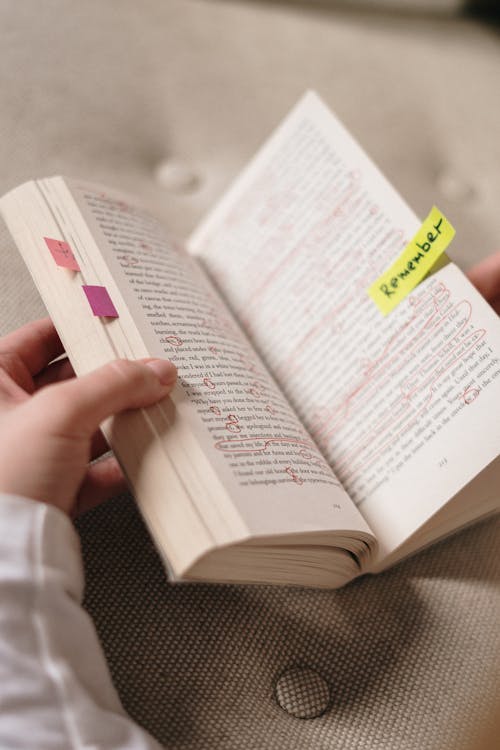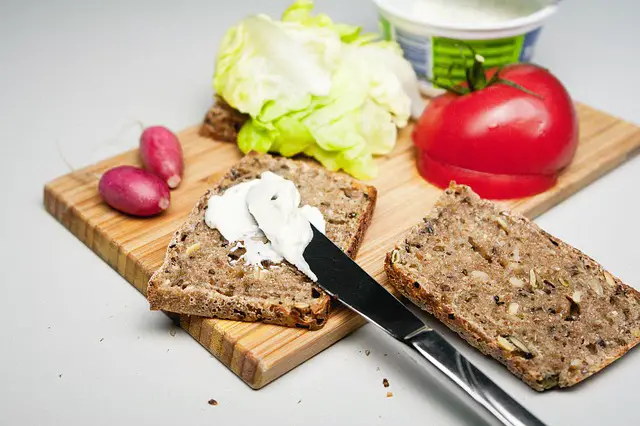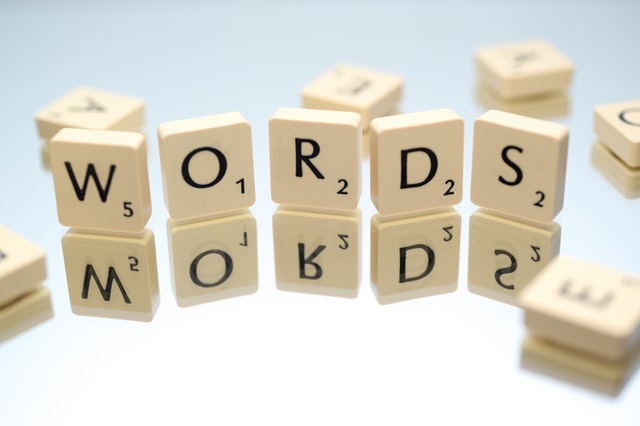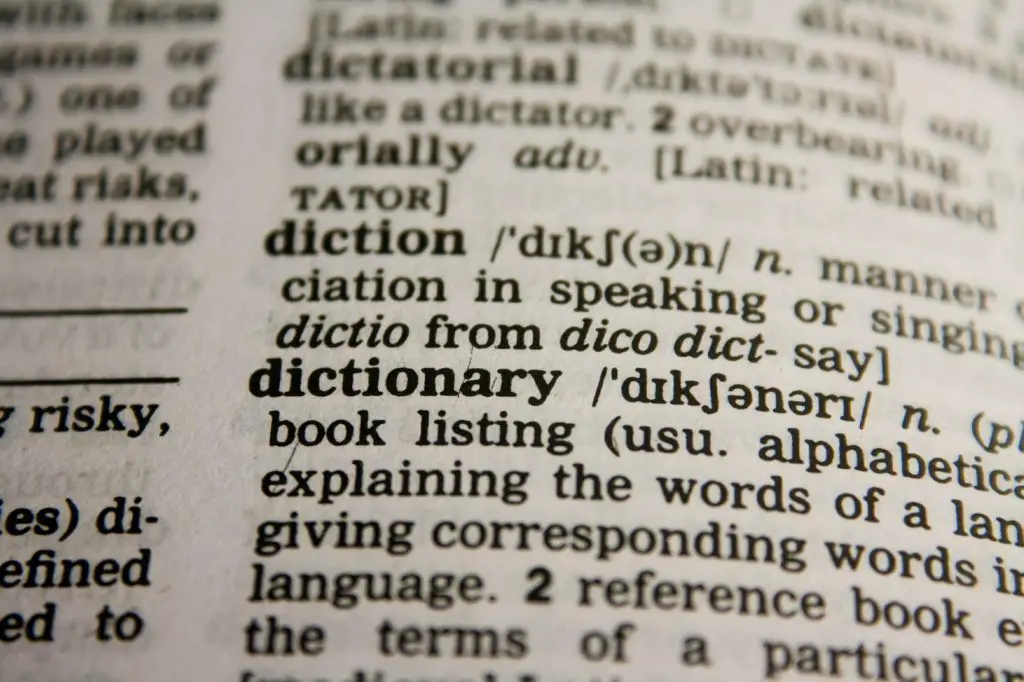Actors tell stories, express emotions, and engage their audiences through words, and increasing your vocabulary is an often overlooked yet simple way to make your performances more powerful.
Unfortunately, all words were not created equal. Some words can express emotion better, others can make you laugh and some can have you at the edges of your seat full of anticipation.
By increasing your vocabulary you can enhance your acting performance profoundly by always having an arsenal of words that are expressive, succinct, and captivating.
And the best part is that by devoting just a little bit of time on a consistent basis you can build a diverse, extensive, and powerful vocabulary that will give you an edge over your competition.
This is because of how quickly technology has evolved and how accessible education has become over the years.
Why is vocabulary important for actors?
Reading is an important part of an actor’s life.
As an actor, you have to read various materials including scripts, plays, and other dramatic literature. Reading is the key to comprehending and visualizing a story. It is also an important tool for understanding the underlying nuances and internalizing the material.
Developing and expanding your vocabulary is therefore a valuable skill set that will elevate your reading and comprehension.
A good vocabulary facilitates understanding not only the direct meaning of words but also the metaphorical significance and contextual relevance as well.
Reading and vocabulary essentially go hand in hand since having a good lexicon enhances your reading and reading, in turn, develops your vocabulary.
Faster processing speed

If you have a good vocabulary you can read and process information faster.
When you are familiar with words and comprehend their meaning, your memory doesn’t have to work hard which allows you to take in and understand information quickly.
Bolster your confidence
Developing an extensive diction lets you articulate your ideas clearly. It also enables you to think in a succinct and accurate manner.
This makes your communication coherent and allows you to convey your thoughts and ideas confidently.
As an actor this will come in handy when proposing your own ideas, understanding your director’s vision about a project, and other situations.
Think different

Increasing your vocabulary is essential for introducing new patterns and ways of thinking and breaking away from old ones.
Words are essential in forming our thoughts and ideas.
Having a diverse arsenal of words allows us to communicate our ideas and understand the thoughts of others in new and different ways.
Enhance your communication
A well-developed vocabulary is the foundation of good communication.
How many times have you caught yourself using words like “fine” or “good” to describe a wide range of situations or experiences?
This often results in not clearly communicating what you actually wanted to convey.
On the other hand with a strong vocabulary, you would instead use words like “astounding”, “remarkable”, “stunning” and “phenomenal” to truly capture the intensity and context of your thoughts and emotions.
It’s also common to find people simply slapping on adjectives to words to express heightened emotions or situations.
For example, you have probably heard people saying “I’m really really interested”.
Instead, they could have used words like “mesmerized”, “fascinated”, and “spellbound” to express the degree of the word “interested” precisely.
This is the power of robust diction.
It helps you express your thoughts clearly and accurately by using the right words.
15 Ways to Improve Your Vocabulary

1. Study the word’s etymology
A large portion of English words have originated from the Greek and Latin languages.
Studying and understanding the roots of these words makes it easier to understand new words.
Being aware of and knowing where English words originate from is a fun way of developing your vocabulary.
Take the word “astronomy” as an example. The latin root of the word is “ast(er)” which means star. After understanding this root word you can then easily comprehend the meaning of similar words like “asteroid” and “astronaut” even if you don’t know these words. Building your comprehension of key words makes it easier to figure out what new words mean.
More than half of English words come from Greek and from Latin. It’s a well-known fact that more English words come from Latin than Greek, except for some that are specifically related to politics or mathematics.
This means that if you broaden your understanding of these root languages, you can more easily make sense of new words. Etymonline is a great resource you can use for finding the roots of words.
2. Use a dictionary while reading

Reading is by far one of the most effective ways to build a vocabulary.
What makes reading useful in learning new words is that you get the context in which the words are used as opposed to simply memorizing the definitions of words.
When you start reading with a dictionary you will notice that there are a lot of words that you gloss over or assume that you know what they mean.
The next time you come across an unfamiliar word, take a second to think about the context it’s being used in to try and understand what it means.
The narrative and writing tone of the story are great contextual elements that you can use to decipher the meaning of a word.
Then use your dictionary to cross-reference the word and compare its formal meaning to the contextual meaning you gave it.
It is a good practice to jot down unfamiliar words in a vocabulary journal and look them up in your dictionary later if you don’t want to interrupt your reading flow.
3. Play word games.

A simple and fun way to increase your vocabulary is through playing word games.
If you want to play word games with your family and friends Quiddler, Scrabble and Boggle are great options to check out.
You can also play word games by yourself by doing crossword puzzles, anagrams, and word jumble. If you are interested in word game mobile apps check out this list.
4. Utilize flashcards.
Using flashcards is a very simple and proven method to remember new words and their definitions.
The act of physically writing a word or phrase also enhances your ability to remember them. T
he best way to use flash cards is pairing it with a spaced-repetition system.
Whenever you learn an unfamiliar word or root, make a flashcard for it. On one side of the card write down the new word. On the flipside of the card you can:
- Write the meaning
- Write a sentence with the word.
- Draw an image to represent the word.
- Conjugate the verb or write it in a different tense or form.
- Write other words in the word family. Example: Flash card Front: class Flash card Back: classroom, classmate
You can practice remembering the meaning from the words or the words from the definition.
There are also lots of flashcard apps that you can use to study or revise new words at your convenience.
5. Apply your new words in your daily interactions

On average it is necessary to repeat a word between 10-20 times to incorporate a novel word into your vocabulary.
It’s a good idea to write a sentence that uses the word you’re trying to learn, as well as writing down the definition.
This helps you memorize words better.
It’s a good idea to start using the word when you write emails, journal entries, and the like. You can also find creative ways to use it in dialogues or discussions.
Within a timeline of a week, you should aim to make active use of new words at least 15-30 times which is the amount of usage needed to get basic proficiency.
6. Make a list of synonyms using a thesaurus
Do you find yourself frequently using the same word over and over in your conversations?
Write down the word in your vocabulary journal.
Then use a thesaurus or glossary to create a list of 15-20 alternate words that you can use in its place. Group new words and synonyms that you have learned by meaning.
This will make it easy for you to point out patterns in your conversations or dialogues.
For example, you might learn words like pain, hurt, and agonize, which all express a negative and awful sentiment. Putting these words into clusters makes it easy to recall their basic definitions and incorporate them in a conversation.
7. Improve retention

Memorizing the definitions of new words and using flashcards are a good start to increasing your vocabulary but not enough.
At the end of each week, create and take a quiz that includes the vocabulary words, root words, and other related aspects that you’ve been studying. Testing yourself will show you how well you are retaining what you have studied as well as pinpoint your weak areas.
Vocabulary.com is a great website that has a wide array of question types and activities you can use.
8. Use word associations
Word association is another great method to develop your vocabulary. Read or speak the word that you are learning and associate it to a word you already
9. Use a journal.

Whenever you are reading, jot down unfamiliar words in a vocabulary journal and look them up in a dictionary.
Even if you don’t have time to reference the words while you are reading, look them up afterward.
It is essential to make a list of new words you encounter because this allows you to refer to them at any time and gradually integrate them into your everyday diction.
Maintaining a journal also helps you learn new words as you write them down, go figure.
Looking at a list of new words that you are now familiar with is a great motivator to keep on increasing your vocabulary.
10. Learn New Words Every Day
If you want to increase your vocabulary without feeling overwhelmed, commit to learning at least one new word every day.
There are various ways to do this, such as using a Word of the Day calendar or app, or simply picking a word from a thesaurus or dictionary.
Increasing your vocabulary in small increments is Adding to your vocabulary in small bites is very easy to accomplish and it will also enhance your retention.
11. Diversify Your Reading List

If you are always reading the same type of material, you are not exposing yourself to a diverse range of words.
Reading different types of materials and subjects will allow you to encounter new and unfamiliar words.
You can make your reading experience more varied and read everything from Shakespeare and politics to history and personal narratives. Give novels a try too 🙂
Pick subjects and topics that you enjoy though so that the reading experience in itself is pleasurable.
12. Use spaced repetition
The basic concept of spaced repetition states that people remember things better if they review them regularly and by incorporating sufficient time gaps between review sessions. (eg. everyday, every other day, 3 times a week, etc..)
This is why reviewing what you’ve learned regularly is so important to effective learning and retention.
Try to revise any new words you have learned as regularly as possible.
If you study or revise your words just once or twice and forget about them you are very likely to forget them.
Test yourself a week or two after you studied a word to evaluate your retention.
13. Study vocabulary in context

When you are learning unfamiliar words, the best way to do so is in the context of a narrative and sentences.
This will greatly enhance your learning, recall and retention.
Even if you start out by learning isolated words just by themselves you should always then use them in sentences and also ascertain how the words function in different contexts and narratives.
A good analogy for this is thinking of words like pieces of a puzzle. It’s hard to remember and use the pieces if they are randomly scattered.
Yet, when you put together a few pieces of the puzzle you start to see a pattern develop and eventually end up with the full picture.
The same goes for words.
Try different ways of learning words including using stories, sentences, songs, or even day-to-day scenarios.
For instance, if you want to learn words about the weather, imagine yourself as a weather forecaster using the words to describe the weather.
14. Pay attention to suffixes and prefixes
Similar to learning the roots of words, studying prefixes and suffixes is an excellent technique to build your vocabulary.
Ascertaining the purpose of suffixes and prefixes and how they shape the meaning of a word will expand your vocabulary immensely.
For instance the word “agree” can morph into other words with different meanings like “disagree” “agreeable” “agreement” and disagreement”.
15. Explain the word’s connotation
This is the relationship between the word and the feelings associated with it, whether positive, neutral, or negative.
Understanding how words can be construed enhances your ability to use them with precision enables you to use them with greater precision.
A great way to do this is by creating a word scale.
Put two words with opposite meaning or intensity on either end of the scale.
Do an intensity swap;
For example, lets use “whisper” and “bellow” as two opposing extremes that serve as the endpoints for the scale. You can then build the scale with words like “shout”, “yell”, and “intone”.
Now that we have covered how to improve your vocabulary, check out our list below, of common acting terms that any actor should be familiar with. As an actor you will be using most of these words on a regular basis, so use some of the techniques we discussed above and learn some new words!
AN ACTOR’S VOCABULARY
act – to perform for an audience representing another person.
acting area – see stage
actor – performer, player, thespian.

ad lib – create lines or action spontaneously when necessary.
angel – financial backer of a play production. apron – part of the stage projecting past the curtain line toward the audience.
arena stage – see theatre-in-the-round. articulation- the process of starting and stopping vowel and consonant sounds.
audible – able to be heard. audience – people who watch and or listen and respond to performance.
audition – try out for a role in a play. backstage – area that the audience cannot see.
batten – a piece of wood or pipe from which lights, scenery, and curtains are hung.
believable – convincing to the audience. blackout – all stage lights go off at the same time.
blocking – planned movement on stage.
“break a leg” – wish for good luck in a performance. boards – see stage.
build vocally – use the voice to change mood and increase intensity business – ‘small bit of action. ex.
bouncing a ball, writing a letter, making a sandwich.

call board – place where announcements and notices for actors and crew are posted.
cast – actors in a play.
casting – selecting the actor who will play each role in a show.
centerstage – C, middle portion of the stage area; between L & R and U & D
characterization – putting together all facets of a character to make that person a believable individual who can be portrayed before an audience. cheat, cheat out – ‘aiming body out toward the audience when talking to another character. climax – ‘high point in the action of a scene. collaboration – the work of many people toward a common project; work done by many people.
comedy – play that treats situations or characters in a humorous way; play with a happy ending.

company – actors and crew of a production.
countercross – ‘move to adjust stage picture after another actor has moved.
crew – a group of workers who handle a specific aspect of production.
cross, X – ‘move from one stage area to another.
cue – last word or action before your line or action; signal for next line, sound effect, light change, etc.
curtain call – the appearance of the cast at the end of the show in response to the audience applause.
curtain line – an imaginary line on the stage below the grand drape.
Cyclorama, cyc – Curtain or drop across the back of the stage; can serve as background for some scenes.
deck – see stage dialogue – spoken lines in a skit or play; actual words that the characters say.

diaphragm – muscle below the ribs that expands out and down causing air to enter the lungs.
director – the person in charge of a production. – the BOSS of the play.
downstage, down – D, portion of the stage closest to the audience; toward the audience.
dress rehearsal – final rehearsal before the show opens with full costumes, makeup, lights, sound, props, etc.
dual role – actor’s task of thinking, feeling, moving & speaking as the character while maintaining technical control – staying open and audible, remembering lines and cues, using “fake” props as if they are real, etc.
effect – emotional recall – ‘remembering a feeling from your own life to apply to a performance.
encore – repeated or additional performance at the end of a play.
entrance – ‘come onto the stage.
exhale – expel air from the body.
exit – ‘leave the stage.

exposition – beginning of the play which explains the who, what and where of the plot.
extra – castmember who serves as a background for the action. Usually used in television or films.
eye contact – a performer looking out at the audience directly from time to time. (Should be done at least half the time.)
finale – concluding part of any performance.
flat – canvas covered wooden frame used for scenery.
flies – area between the top of the proscenium arch and the stage ceiling; loft; fly area.
fly – to raise scenery above the top of the proscenium opening to lower it down to the stage floor.
followspot – spotlight that can be moved around during a performance. front, out front – see house.
full back – actor facing away from the audience. Used only on special occasions.
full front – actor facing the audience directly. Used for important lines and actions.
gesture – ‘movement of a part of the body to communicate an emotion or idea.
give a scene – ‘give audience attention to another actor or actors.
grand drape – front curtain separating the stage from the audience, often simply called “the curtain.
greenroom – backstage lounge or waiting room for the actors (almost never painted green!)
grip – stagehand who moves scenery on and off stage.
house – the audience; place where the audience sits; front, out front. 7-88
imagery – words or phrases that appeal to the senses.
imagination – ability to form mental images or concepts that are not actually present in reality. A necessary component of theatre, utilized by actors and the audience.
improvisation – make up dialogue and action as you go; usually guided by an idea, theme, or topic. Acting without rehearsal.
inflection – gliding from one pitch level to another. Can change the meaning of words. inhale – take air into the lungs.
intermission – short break between the acts of a play or parts of a performance.
introduction – announce a scene or selection to an audience, giving information ; includes title, author or playwright, and any necessary information to understand the performance.
kill – turn off; stop; remove from stage.
larynx – voice box, contains the vocal chords. left, stage
left – L, actor’s left when facing the audience.
legs – narrow curtains on either side of the stage that mask the wings.
lines – pieces or sentences of dialogue.
makeup – cosmetics of various colors applied to the actor’s skin so that facial features are visible and/or altered under stage lighting.
mask – hide from audience view.
mime – stylized pantomime; done in makeup and costume.
motivation – the reason behind a character’s behavior.
objective – character’s goal.
off – see backstage.
on – on stage.
one quarter – actor turned halfway between full front and profile. Used to share a scene.
onomatopoeia – words that sound like what they mean. ex. boom, clack, zip.
open, open up – turn toward the audience.
out front, front – audience seating area.
pacing – tempo or speed at which scene is played. Very important in comedy.
pantomime – acting without talking or sound effects.
pick up cues – quickly begin a speech without allowing a pause between the first words of the speech and the cue.
pitch – highness or lowness of the voice.
places – order for actors and crew to get into position for the beginning of a scene.
plant – place a prop on stage before the show so that it is available when the script calls for it.
player(s) – see actor.
playing area – see stage.
playwright – person who plans and writes plays.
practical – set piece or prop that is usable, actually works.
Ex – door or window that opens and shuts, rock or hill you can stand on, lamps that can be turned on.
producer – person who finds financial investors, hires the director and production staff, sets the budget, etc. for a play production.
profile – actor position facing the wings, left or right. Used for arguments or love scenes.
project, (pro’ ject) – throw the voice to the farthest person in the audience.
prompt book – script marked with directions and cues for use by the crews.
prompter – person situated offstage who supplies missed lines during a performance.
pronunciation – producing the sounds of words. (Correct sounds, stresses and accents can be found in the dictionary.)
properties – all articles and furnishing needed on stage in a play. with the exception or scenery and costumes; can be carried on or planted; props.
proscenium – permanent framed opening through which the audience sees a play.
AN ACTOR’S VOCABULARY Continued …
raked stage – stage floor tilted toward the audience. rate – speed or tempo.
Reader’s Theatre – rehearsal – cast members working on a production under the guidance of the director.
resolution – ending, happy or sad; conclusion to a story.
resonance – enrichment of sound from its vibration in a closed space.
resonators – body chambers where sound vibrates; throat, mouth, nasal cavity & sinus cavities.
right, stage right – R, actor’s right when facing the audience.
rising action – conflict in a scene gets worse and/or more complicated.
role – part or character played by an actor.
royalty – money paid to a playwright for permission to stage his/her play.
scene – performance with beginning, middle and end; section of a play that occurs at one place, at one time.
scenery – hangings, structures, etc. that represent a location or decorate the stage; set.
script – written copy of a play.
sensory recall – ‘remembering how an action or object felt, looked, smelled, sounded or tasted.
set – see scenery.
share a scene – ‘have equal audience attention with another actor
stage area(s)– sections of the stage, named for their relation to the audience.
stage directions – script instructions for movement, business, lighting, sound, etc. Usually in parentheses.
stage fright – ‘nervous feeling about performing.
stage hands – see grip.
strike – to clear from the stage completely; take down and store away when the run of the play has ended.
take a scene – ‘get audience attention.
teasers – short curtains hung above the stage to mask the lights and battens.
technical director – person in charge of everything back of the grand drape except the actors and costumes; answers to the stage manager.
technical rehearsal – rehearsal for perfecting lights, scenery, sound, and other technical elements.
theatre in the round – theatre facility where the audience surrounds the stage on the all sides; arena stage.
thespian – see actor.
three quarters – actor facing upstage corners of the stage. Used to give a scene.
thrust stage – stage that extend well past the proscenium arch so that the audience surrounds it on three sides.
tongue twister – difficult to pronounce phrases or sentences used as articulation exercises.
top – lines begin before the previous line is finished. tormentors – see legs.
tragedy – a play in which the protagonist fails to achieve their goal; a play with a sad or tragic ending.
trapdoor, trap – an opening in the stage floor that permits actors to enter from and exit to an area beneath the stage.
traveler mid-stage curtain; act curtain.
troupe – group of actors, especially those that tour from place to place. (Source of the term “trouper.”)
up, upstage – U, portion of the stage farthest from the audience; away from the audience.
vocal variety – changes in rate, pitch, volume and intensity that help a listener stay interested in a vocal performance.
volume – loudness or softness of the voice, sound effects or music.
wagon – platforms or large set pieces on casters.
walk on – part where an actor comes on and off stage without saying a line.
wardrobe – costumes.
wings – backstage area on either side of the stage. The offstage areas to the right and to the left of the playing space.
wing space: the amount of space on the stage that is not visible to the audience.
wooden : a dull and unemotional performance or performer which tends to be stiff or inflexible.
word play: Verbal fencing, punning, or mock bickering, usually between male and female characters.
work call: The time period during which the crew is called to work on any technical elements of the production.
working backwards: A technique in which an actor prepares the audience for what a character will do later.
working rehearsal: The rehearsal at which interpretation of the play is developed and words and actions are put together.
work lights: General lighting that does not go through the dimmer board, used for rehearsals and technical work.
workshop performance: A performance in which maximum effort goes towards acting and interpretation rather than sets or costumes, usually with a limited rehearsal period.
workshopping: The process of preparing a play through various workshop performances, which could extended over a number of years.
X (cross): notation in the prompt book that an actor crosses at that time.
Conclusion
Increasing your vocabulary is highly beneficial for anyone but especially for actors. A robust vocabulary improves your reading comprehension and helps you think and process information faster.
Improving one’s vocabulary is a long process that requires dedication and effort over the course of several months or even years.
However, by using simple techniques like spaced learning, using flashcards, taking quizzes, and learning a word a day, you should have a fun and challenging experience.
Developing an extensive and diverse vocabulary will enable you to expand your thinking and communicate more effectively on your path to becoming a more well-rounded, curious, and engaged individual.
Which techniques will you use today to increase your vocabulary? let us know in the comments below…


